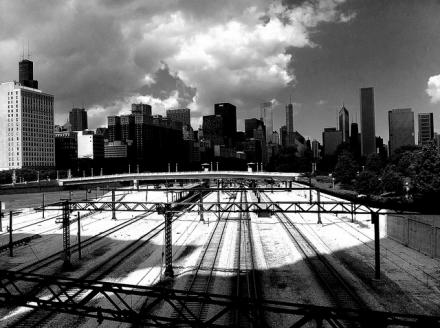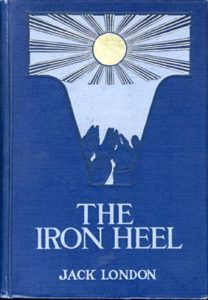
We sometimes describe Henry George’s fiscal proposal as a “smart tax,” unlike the inefficient anti-prosperity taxes that fund most government programs today. Similarly, there can be “smart” transit facilities, which are distinguished from dumb ones because they are cost less and provide more service. Perhaps the most prominent recent smart transit proposal is the CTA Gray Line, whose creator, Mike Payne, will be our speaker tonight.
From the CTA Gray Line web page:
Launching the Gray Line would provide a brand new CTA Rapid Transit (‘L’) service (on EXISTING facilities) to Grant Park, the Museum Campus, the newly renovated Soldier Field, and McCormick Place (with a connected station under the McCormick Place South Bldg.)
Also service to Bronzeville, Hyde Park, the Museum of Science & Industry (with an ADA compliant station 1 1/2 blocks away), the University of Chicago, Woodlawn, South Shore, South Chicago, Chatham, Chicago State University, Pullman, Roseland, Blue Island, and Hegewisch; again almost all Gray Line facilities are in place, and operating RIGHT NOW TODAY.
. . .
There is N O need for costly and time consuming design and engineering, right-of-way acquistion, condemnation, demolition, clearing, materials acquisition, delivery, and major construction; the CTA Gray Line ‘L’ System could be up and providing CTA ‘L’ service to the Far South Side WITHIN O N E YEAR, rather than waiting until 2016 for completion of the Red Line Extension.
Come to this free presentation to meet and question a prominent transit activist, and think about what could be done with all the public money saved by smart projects like the CTA Gray Line.

This presentation has been cancelled. We will let you know when it’s been rescheduled. There will be no presentation February 21, 2019.
The Battle of Lincoln Park tells the story of how people with clashing visions and values fought to determine the path gentrification would take before anyone was using that word. Calling on the power of private funds, public policy, moral appeals, and both nonviolent and violent protest, residents of Old Town and Lincoln Park struggled over the meaning of “desirable” homes, “neighborhood character”, and what kind of city Chicago should be. The outcomes set the tone for profound changes to the city that are still unfolding today.
Acclaimed author Daniel Kay Hertz has written extensively on subjects relating to gentrification, housing, urban demographics, and transportation. This is his first book.
Registration is required for this free event. Building security will print a badge for you to go upstairs. If you plan to come, or are just considering the possibility, please let us know by email events@hgchicago.org or by phoning us at 312 362-9302.

This presentation has been rescheduled and will now take place Thursday, March 7, 2019, at 6:15 pm.
The Battle of Lincoln Park tells the story of how people with clashing visions and values fought to determine the path gentrification would take before anyone was using that word. Calling on the power of private funds, public policy, moral appeals, and both nonviolent and violent protest, residents of Old Town and Lincoln Park struggled over the meaning of “desirable” homes, “neighborhood character”, and what kind of city Chicago should be. The outcomes set the tone for profound changes to the city that are still unfolding today.
Acclaimed author Daniel Kay Hertz has written extensively on subjects relating to gentrification, housing, urban demographics, and transportation. This is his first book.
Registration is required for this free event. Building security will print a badge for you to go upstairs. If you plan to come, or are just considering the possibility, please let us know by email events@hgchicago.org or by phoning us at 312 362-9302.
 Bob Matter’s Political Economy Book Club is reading Jack London’s dystopian novel The Iron Heel. On June 25 we’ll discuss chapters 1-13, and on July 23 chapters 14-25. This 1908 text is available free from Project Gutenberg, in hardcopy from some public libraries, or as an audiobook. You can buy used hardcopies for < $10 from several vendors.
Bob Matter’s Political Economy Book Club is reading Jack London’s dystopian novel The Iron Heel. On June 25 we’ll discuss chapters 1-13, and on July 23 chapters 14-25. This 1908 text is available free from Project Gutenberg, in hardcopy from some public libraries, or as an audiobook. You can buy used hardcopies for < $10 from several vendors.
We’ll meet at the East Loop location of Bridgeport Coffeehouse, 73 E Jackson Blvd.
 Bob Matter’s Political Economy Book Club concludes its discussion of Jack London’s dystopian novel The Iron Heel. On July 23 we treat chapters 14-25.
Bob Matter’s Political Economy Book Club concludes its discussion of Jack London’s dystopian novel The Iron Heel. On July 23 we treat chapters 14-25.
We’ll meet at the east loop location of Bridgeport Coffee, 73 E Jackson.

Decades before Wealth of Nations, Adam Smith wrote what he seems to have considered a superior work, Theory of Moral Sentiments. He wrote:
How selfish soever man may be supposed, there are evidently some principles in his nature, which interest him in the fortune of others, and render their happiness necessary to him, though he derives nothing from it except the pleasure of seeing it.
Wikipedia asserts:
Smith critically examines the moral thinking of his time, and suggests that conscience arises from dynamic and interactive social relationships through which people seek “mutual sympathy of sentiments.”[74] His goal in writing the work was to explain the source of mankind’s ability to form moral judgement, given that people begin life with no moral sentiments at all. Smith proposes a theory of sympathy, in which the act of observing others and seeing the judgements they form of both others and oneself makes people aware of themselves and how others perceive their behaviour.
The Theory of Moral Sentiments has been printed in numerous editions, and is also available free on line. Smith revised the book throughout his lifetime; it’s best to avoid the first edition, and choose one published after his death in 1790.
In this session we’ll discuss parts 1-3 of the book, taking up parts 4-7 on November 20,
Please register for this Zoom Webinar by clicking the green registration button.
David Wilson, author of the forthcoming book Towns Along the Q, will discuss the consequences of certain disastrous and discriminatory housing policies that he has become familiar with in the course of researching the topic, development of Chicago’s western suburbs along the Chicago Burlington & Quincy Railway.


